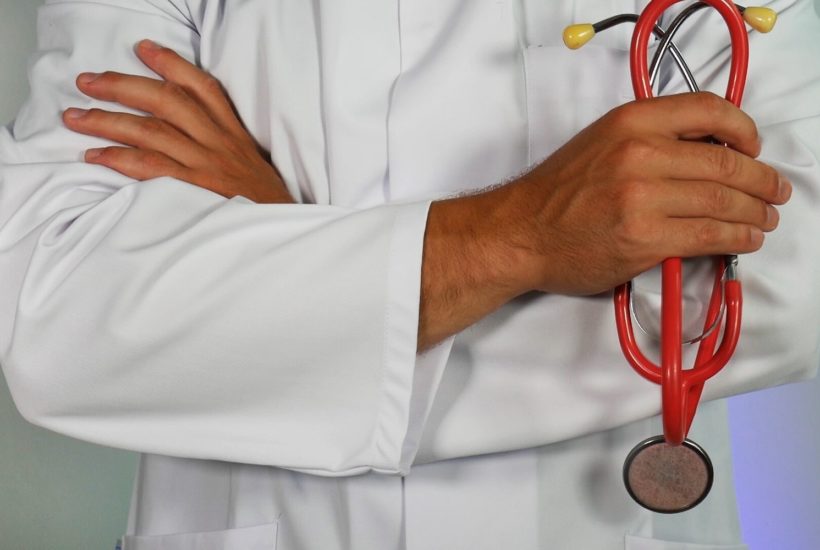Biotech
Historic boom for Lysogene biotech in the U.S. market
The shares of Lysogene, a biopharmaceutical company, have risen by more than 50% thanks to the granted “Fast Track” designation to its investigational therapy LYS-SAF302 for the treatment of Type IIIA mucopolysaccharidosis by the U.S. Food and Drug Administration. MPS IIIA is a lethal neurological disease for which there is currently no treatment.

The U.S. drug agency has granted “fast track” designation to the therapy developed by French biotech to treat Sanfilippo syndrome, a devastating genetic disease. The share price of the company founded by Karen Aiach has risen by more than 50%, the highest it has been since it was floated in 2017.
Nothing seems to be able to stop the rebound undertaken by Lysogene on Monday, February 24th, indifferent to the downward turn of the CAC 40. The rise in the price of the Parisian biotechnology company, co-founded by Karen Aiach, to try to find a treatment for her daughter Ornella, who is suffering from a rare genetic disease.
Read the latest biotechnology articles on biotech industry leaders, emerging biotech companies, financial headlines, and other biotech industry news with the Born2Invest mobile application.
“Fast Track” designation to investigational therapy
Listed in compartment C, Lysogene announced on Tuesday morning, February 25th, that the U.S. Food and Drug Administration had granted “Fast Track” designation to its investigational therapy LYS-SAF302 in the treatment of Type IIIA mucopolysaccharidosis (MPS IIIA, or Sanfilippo syndrome).
“MPS IIIA is a lethal neurological disease with highly disabling symptoms for which there is currently no treatment. The FDA’s recognition of the potential of LYS-SAF302 to improve neurocognitive disorders in children with MPS IIIA is a significant success for Lysogene and for patients,” said Karen Aiach, its Chief Executive Officer.
A product authorized to take the ‘fast track’ to the market in this way is eligible for more frequent meetings with Agency representatives to discuss the development of the product and to ensure that the data collected best meets the Agency’s requirements, as well as more regular written communication on issues such as the design of proposed clinical trials.
This closer guidance is particularly valuable in the field as new as gene therapy, which aims to directly correct defective genes that cause rare and often life-threatening diseases. “In the complex field of gene therapy applied to neurodegenerative diseases, continuous communication with the FDA is essential,” stressed Lysogene’s Director of Regulatory Affairs, Marie Deneux.
Therapy is currently being evaluated in an international Phase 2/3 clinical trial
If the relevant criteria are met, Fast Track also enables eligibility for Accelerated Approval and Priority Review and allows the company to submit the different parts of the file as it goes along, without having to wait for all the documents to be assembled and submitted to the agency at once.
Affecting approximately 1 in 100,000 newborns, MPS IIIA is a disease characterized by behavioral disorders and severe intellectual regression, causing death most often between the ages of 15 and 20. It is caused by mutations in a gene that makes an enzyme needed to recycle a compound called heparan sulphate (HS) into cells. Failure to allow this cleansing to take place results in an overload of HS inducing pronounced neurodegeneration. While there are currently no therapeutic options available, LYS-SAF302 has been designed to deliver a functional copy of the defective gene to the brain in a single administration.
This therapy is currently being evaluated in an international Phase 2/3 clinical trial called “AAvance” (NCT03612869). Of the 20 planned patients, 17 have been treated to date. The main objective of the study is to evaluate the efficacy of LYS-SAF302 in improving the neurocognitive development of patients after 24 months.
__
(Featured image by Online Marketing via Unsplash)
DISCLAIMER: This article was written by a third party contributor and does not reflect the opinion of Born2Invest, its management, staff or its associates. Please review our disclaimer for more information.
This article may include forward-looking statements. These forward-looking statements generally are identified by the words “believe,” “project,” “estimate,” “become,” “plan,” “will,” and similar expressions. These forward-looking statements involve known and unknown risks as well as uncertainties, including those discussed in the following cautionary statements and elsewhere in this article and on this site. Although the Company may believe that its expectations are based on reasonable assumptions, the actual results that the Company may achieve may differ materially from any forward-looking statements, which reflect the opinions of the management of the Company only as of the date hereof. Additionally, please make sure to read these important disclosures.
First published in BFMBOURSE, a third-party contributor translated and adapted the article from the original. In case of discrepancy, the original will prevail.
Although we made reasonable efforts to provide accurate translations, some parts may be incorrect. Born2Invest assumes no responsibility for errors, omissions or ambiguities in the translations provided on this website. Any person or entity relying on translated content does so at their own risk. Born2Invest is not responsible for losses caused by such reliance on the accuracy or reliability of translated information. If you wish to report an error or inaccuracy in the translation, we encourage you to contact us.

-

 Business1 week ago
Business1 week agoThe TopRanked.io Weekly Digest: What’s Hot in Affiliate Marketing [uMobix Affiliate Program Review]
-

 Business2 weeks ago
Business2 weeks agoThe TopRanked.io Weekly Digest: What’s Hot in Affiliate Marketing [PureVPN Affiliates Review]
-

 Crypto2 days ago
Crypto2 days agoBitcoin Stabilizes Above $120K: Consolidation Signals Before Next Breakout
-

 Crowdfunding1 week ago
Crowdfunding1 week agoPMG Empowers Italian SMEs with Performance Marketing and Investor-Friendly Crowdfunding
























